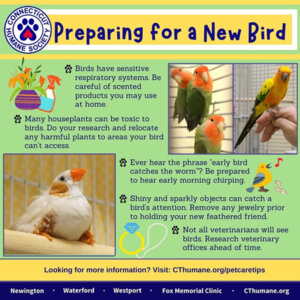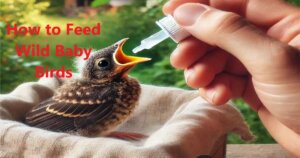Why Is Incense Bad for Birds?
Burning incense can seem like a harmless way to create a relaxing atmosphere, but for birds, it’s a serious health risk.
Birds have highly sensitive respiratory systems that are easily irritated by smoke, chemicals, and strong scents. As a bird lover and pet owner, it’s essential to understand why incense is harmful to your feathered friends and how to protect them.
Let’s explore this issue in detail.
How Does Incense Affect Birds?
Incense produces smoke filled with fine particles and chemicals. These are inhaled deeply by birds due to their unique respiratory systems. Unlike humans, birds’ lungs and air sacs absorb more oxygen per breath, making them more efficient but also highly vulnerable to airborne toxins.
The Immediate Impact of Incense Smoke
- Irritated Airways: Birds may sneeze, wheeze, or show signs of labored breathing.
- Stress Response: The strong smell and smoky environment can make birds anxious or restless.
- Toxic Reactions: Exposure to harmful compounds in incense can cause poisoning, especially if used frequently.
Long-Term Effects of Exposure
- Chronic Respiratory Diseases: Birds exposed to incense over time may develop serious lung conditions like asthma or aspergillosis.
- Reduced Lifespan: Poor air quality can weaken a bird’s immune system and shorten its life.
Why Are Birds So Sensitive to Airborne Pollutants?
Birds’ respiratory systems are adapted for high oxygen intake, supporting activities like flying. But this efficiency also makes them more susceptible to environmental toxins.
Every breath they take absorbs more pollutants than humans, even in seemingly small amounts.
Respiratory Anatomy of Birds
- Air Sacs: Birds have air sacs that help circulate air through their lungs. This system is more efficient but also more exposed to toxins.
- Thin Lung Membranes: These membranes make oxygen absorption easier but also allow harmful particles to penetrate deeply.
Symptoms of Incense Exposure
- Labored breathing
- Fluffed feathers (a sign of discomfort or illness)
- Reduced activity or lethargy
- Unusual sneezing or coughing
What Makes Incense Harmful to Birds?
Incense contains a mix of ingredients that can harm your bird. The following substances are particularly dangerous:
Dangerous Substances in Incense
- Particulate Matter: Fine particles released during burning can settle in a bird’s lungs and cause irritation.
- Volatile Organic Compounds (VOCs): Chemicals like benzene and formaldehyde are often present in incense smoke and can be toxic.
- Synthetic Fragrances: Many incense sticks are made with artificial fragrances, which can trigger allergic reactions in birds.
Even natural incense isn’t safe, as the burning process itself releases harmful particulates.
Are There Safe Alternatives to Incense?
If you enjoy creating a calming atmosphere in your home, there are safer options that won’t harm your bird. Always prioritise air quality over artificial scents.
Bird-Safe Alternatives
- Essential Oil Diffusers: Use 100% pure, bird-safe oils like lavender or chamomile in small amounts.
- Fresh Herbs: Place basil, rosemary, or mint in your home to enjoy natural aromas without smoke.
- Air Purifiers: A purifier with a HEPA filter can remove allergens and improve indoor air quality.
Important Note: Avoid using essential oils excessively or directly near your bird, as some oils can still irritate their sensitive systems.
How to Maintain a Safe Environment for Birds
Clean air is crucial for your bird’s health. Here’s how you can ensure a safe and comfortable space for them:
Tips for Bird-Safe Air Quality
- Eliminate Smoke: Avoid burning incense, candles, or tobacco around your bird.
- Ventilation: Open windows regularly to let fresh air circulate.
- Use HEPA Filters: Invest in an air purifier to remove dust, dander, and other pollutants.
- Houseplants: Use non-toxic plants to improve air quality naturally.
My Personal Experience with Incense and Birds
I once lit incense in my home, not realising how harmful it could be for my budgie. Within minutes, she started sneezing and became visibly distressed. I immediately removed the incense, ventilated the room, and promised myself never to risk her health again. That moment taught me how delicate birds are and how crucial it is to understand their needs.
Can Incense Be Harmful Even in Small Amounts?
Yes, even occasional use of incense can harm birds. Birds’ respiratory systems are so sensitive that minor exposure to smoke or chemicals can cause irritation. Over time, the cumulative effect of low-level exposure can lead to chronic health issues.
The Risks of Occasional Exposure
- Short-term irritations may not seem severe but can escalate quickly.
- Hidden symptoms like reduced activity or minor coughing are often early warning signs of bigger issues.
What Do Experts Say About Incense and Birds?
According to avian veterinarians, the best way to protect your bird’s health is to avoid any form of smoke in your home. “Birds are extremely vulnerable to airborne toxins due to their unique respiratory systems,” says Dr. Sophia Sanchez, an avian specialist. This includes not just incense but also candles, aerosol sprays, and even cooking fumes.
FAQs About Why Is Incense Bad for Birds
1. Can burning candles also harm birds like incense does?
Yes, many candles release smoke and chemicals when burned, similar to incense. Scented candles, in particular, can irritate birds’ sensitive respiratory systems.
2. Are certain types of incense safer for birds?
No, all incense releases smoke and particulate matter that can harm birds. Even natural or organic incense poses risks because burning creates harmful particles.
3. What are some signs that incense is affecting my bird’s health?
If your bird is sneezing, wheezing, fluffed up, or unusually lethargic, they may be reacting to poor air quality caused by incense or similar pollutants.
4. How can I tell if the air in my home is safe for birds?
Use an air quality monitor to check for pollutants like smoke or VOCs. Ensuring proper ventilation and using a HEPA air purifier can also improve indoor air safety.
5. Can essential oil diffusers be a safer alternative to incense?
Essential oil diffusers can be safer but should be used with caution. Only use bird-safe oils like lavender or chamomile in small amounts, and never diffuse near your bird.
Sum Up
Incense is harmful to birds because of the smoke, chemicals, and fragrances it releases. Birds’ respiratory systems are incredibly efficient but highly sensitive, making even small exposures dangerous.
If you want to create a relaxing atmosphere in your home, choose bird-safe alternatives like fresh herbs or air purifiers. Always prioritise your bird’s health by maintaining clean, toxin-free air.
If this article has been helpful, please share it with fellow bird lovers to spread awareness and help create safer homes for our feathered friends. Let’s make sure every bird lives a happy, healthy life.
Hello Dear, I'm Poli Kolymnia, owner of many birds (including budgies).
With a deep passion for these feathered companions, I'm here to share my expertise and extensive knowledge on birds care.
My articles cover essential topics like diet, housing, care, and health, providing practical tips to help you create a happy and thriving environment for your birds.






